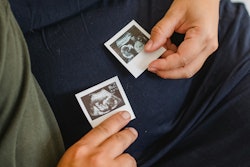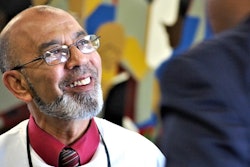Africa: The Epicenter of the AIDS Pandemic
A continent away, in AIDS-ravaged Africa, an effort similar to that in the United States is underway to mobilize and harness the potential of Africa and its communities to redirect life-saving HIV/AIDS programs developed by and for Africans.
“What most of the Western world fails to understand is the range of knowledge, sophistication, solidarity, generosity and sheer, unbridled resilience at the grass-roots of the continent, particularly amongst the women. We underestimate Africa; we always underestimate Africa,” wrote Stephen Lewis, the United Nations’ special envoy for HIV/AIDS in Africa, in a column he guest edited for Canada’s Ottawa Citizen. Lewis’ column ran late last month during the 16th International AIDS Conference in Toronto.
The Africa that Lewis writes and speaks about so passionately is at the epicenter of the AIDS pandemic and is home to two-thirds of the world’s HIV-positive population. Sub-Saharan Africa has nearly 26 million HIV-positive people.
In the continent most plagued by the deadly virus, there is also an enormous amount of potential, resilience and hope for someday winning the battle against HIV, says Dr. Daraus Bukenya, the HIV/AIDS and tuberculosis program director for the 49-year-old African Medical & Research Foundation. Headquartered in Nairobi, Kenya, AMREF sent a delegation, including Bukenya, to Toronto to take part in the August conference. While calling for change in the delivery of HIV/AIDS programs on the continent, Bukeyna implored the audience to “understand Africa.” Nongovernmental organizations working in Africa, like AMREF, have been largely unenthusiastic about many prevention and treatment strategies discussed at the conference, including abstinence programs, male circumcision and the use of anti-retroviral drugs, or ARVs.
Bukenya admits that the situation in Africa is “unique and complex,” but he says change lies in working with the individual communities. He contends that many established HIV/AIDS programs in Africa have failed because the communities weren’t engaged in their own health care. Bukenya says the real driving forces behind the pandemic on the continent are poverty, poor health, gender inequality and stigma. He says many Africans don’t have access to life-saving anti-retroviral drugs even in areas where they are freely available. Others are forced to choose between feeding their families and providing for a sick family member.
According to the Joint United Nations Programme on HIV/AIDS, new HIV infections every year are outpacing AIDS-related deaths. In Sub-Saharan Africa, for example, there were 2.7 million new infections in 2005 and 2 million deaths. Less than one in five people at risk of becoming infected in the region have access to basic prevention services.
Says Bukenya: “ARVs, promises and appropriate health care will never be delivered; stigma will never be dealt with, and HIV will never be managed until these critical groups form part and parcel of health care delivery. It’s time to deliver, but it is also time to understand Africa.”
— By B. Denise Hawkins
© Copyright 2005 by DiverseEducation.com





















